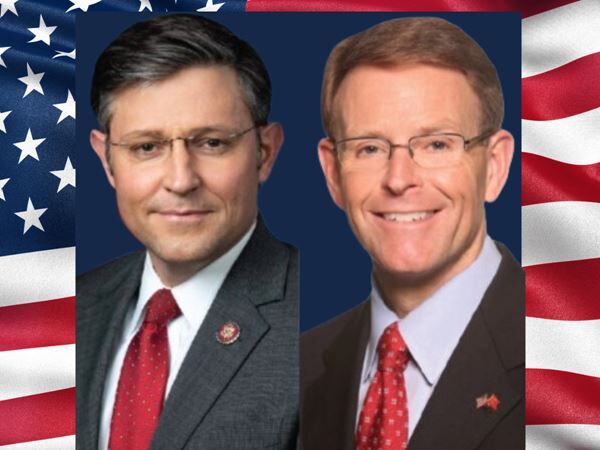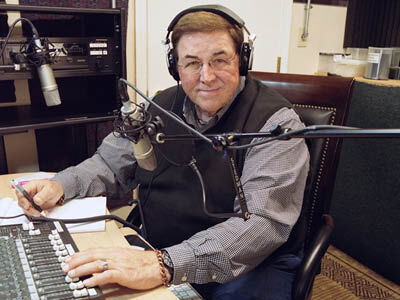Narco interdiction at sea isn’t new, CBP, Coast Guard have been doing it for years
National News

Audio By Carbonatix
10:45 AM on Saturday, October 25
(The Center Square) – President Donald Trump is ordering an aircraft carrier strike group head to the Caribbean to assist with drug interdiction at sea.
This is after he first ordered three military strikes in September on suspected drug vessels in the Caribbean, and again several more this month. Trump said he did so in an attempt to thwart cartel and foreign terrorist organizations from smuggling fentanyl and other illicit drugs to the U.S. to stop the drug war once and for all.
The Trump administration designated the Venezuelan prison gang Tren de Aragua as a FTO in February and has also levied sanctions against Venezuela and Colombia, where cartels and FTOs have long orchestrated global drug and human smuggling operations.
By early October, Trump told Congress the U.S. was engaged in an “armed conflict” with drug cartels in the Caribbean. On Friday, he said he planned to provide more information to Congress about using the U.S. military to target drug cartel operations, The Center Square reported.
While critics argue the president is escalating conflict in the Caribbean, the Department of Homeland Security, U.S. Customs and Border Protection and the U.S. Coast Guard have been interdicting cartel and FTO drug and human smuggling, including in the Caribbean, for years. In addition to targeting cartel operatives, they’ve also been arresting illegal foreign nationals from countries of foreign concern like Russia.
In the first three months of the Trump administration, USCG crews hit a milestone of interdicting more than 80,000 pounds of illicit drugs being smuggled by drug cartels attempting to reach the U.S. Their efforts were part of a U.S. Northern Command (NORTHCOM) directive that deployed two U.S. Navy warships to the southwest border in direct support of Coast Guard interdiction efforts, The Center Square reported.
Last month, federal agents made history by seizing the largest volume of precursors used to produce methamphetamine after interdicting two shipments from two ships on the high seas. DHS Homeland Security Investigations international agents in Guatemala, Panama and Mexico worked closely with foreign law enforcement partners to consolidate shipments in Panama and divert them to the Port of Houston, The Center Square reported.
Their efforts through HSI Operation Hydra are continuing to target drug trafficking by hitting the supply line of chemical precursors used to manufacture fentanyl and methamphetamine being shipped from China to cartel operatives.
Nearly 700,000 pounds of precursor chemicals were seized from two ships in this operation – the largest volume seized in U.S. history.
By comparison, in fiscal 2024, CPB agents seized nearly 174,000 pounds of methamphetamine at the southwest border alone, according to CBP data.
Supporters of Trump’s actions argue military action will better support CBP Marine and Air Operations (AMO) officers and USCG crew who have been combatting drug and smuggling operations at sea with limited resources near Puerto Rico and the U.S. Virgin Islands.
As the border crisis escalated during the Biden administration, CBP AMO and Border Patrol officers working out of the CBP Ramey Sector and USCG crew made record apprehensions. In the first 10 months of the Trump administration, they continue to arrest drug and human smugglers and seize illicit drugs and contraband.
One week after Trump was sworn into office, AMO and USCG interdicted a vessel attempting to smuggle nearly 300 pounds of cocaine around the northern coast of Puerto Rico. Not soon after, AMO seized nearly 800 pounds of cocaine near Dorado, Puerto Rico. They also seized an additional 335 pounds of cocaine north of Luquillo a few months later with the assistance of Coast Guard aircraft based in Miami.
By June, seizure volumes increased, including more than 500 pounds of cocaine after AMO detected a vessel three nautical miles from Rincon. In a major nighttime interdiction operation, AMO seized 1,155 pounds of cocaine (22 bales) south of Cabo Rojo and also arrested foreign nationals.
In an international operation working with British, Dutch and French law enforcement, AMO officers seized even more: 3,175 pounds of cocaine near Virgin Islands, British Virgin Islands. Fifteen men from a range of countries were arrested, CBP said. Not soon after, another 170 pounds of cocaine was seized near Desecheo Island, Puerto Rico, and more illegal foreign nationals were arrested.
By July, seizure volumes continued to increase at sea and on land. In one operation, AMO officers apprehended Venezuelans and seized more than 1,000 pounds of cocaine near Maunabo, Puerto Rico. In another, they seized nearly 600 pounds of cocaine roughly five miles west of Cabo Rojo. In another, they seized a record nearly 4,000 pounds of cocaine near Cabo Rojo.
Border Patrol and USCG also continue to apprehend foreign nationals from countries of foreign concern. Earlier this year, they arrested Russian nationals in an alleged smuggling attempt roughly five nautical miles west of Aguadilla. They also interdicted another smuggling attempt off the coast of Vieques, Puerto Rico, apprehending Uzbekistan nationals.
More recently, they interdicted a vessel near the shoreline of Combate in Cabo Rojo, Puerto Rico, and arrested more than a dozen from Uzbekistan, Kyrgyzstan and Russia.







